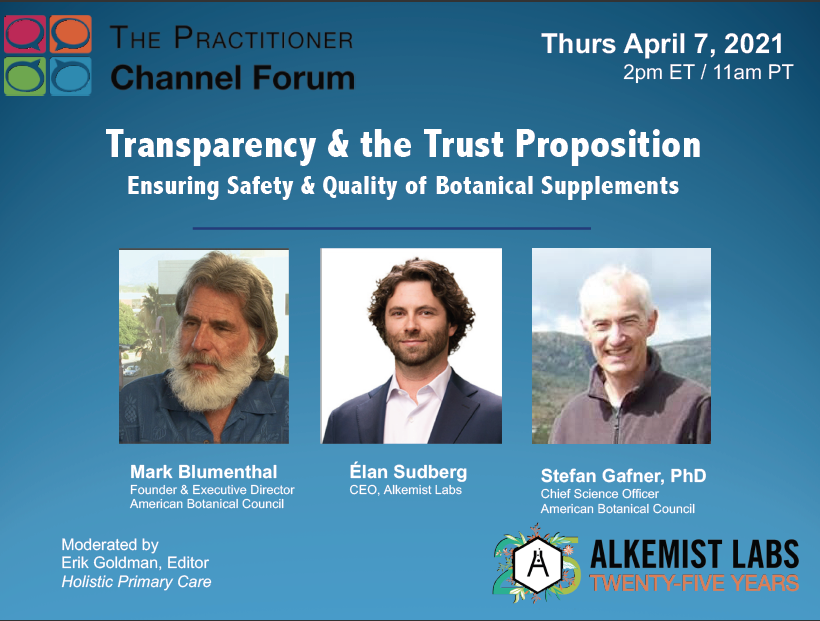
Holistic medicine is built on trust. Your patients trust that you are guiding them toward safe, effective therapies. You, as a clinician must trust that the modalities that you advocate, and the nutraceutical and botanical products you recommend are made to the highest quality and purity standards.
But these days, manufacturers are facing unprecedented raw materials shortages and economic pressures. There’s an ever-present danger of adulteration, contamination, and corner-cutting.
So how can you rest assured that the products you recommend are authentic, pure, safe, and effective?
That’s where lab testing comes in.
The leading nutraceutical brands—especially those working closely with medical practitioners—invest vast resources into analytical testing to ensure that the raw materials they use are clean, and that they are what the suppliers say they are. But analytical testing itself is an evolving field and there are many methodological questions still to be resolved.
As part of our Practitioner Channel Forum online series, Holistic Primary Care has assembled three leaders in the field to discuss the state of the science in analytical testing, particularly as it applies to botanical medicines.
This program will give you in-depth insight into the validated methods used by the world’s top independent labs to validate the identity and purity of herbal ingredients. We’ll also learn about the current status of “DNA fingerprinting” for plants—a set of methods that gained a lot of attention several years ago but has since been called into question.
Sponsored by Alkemist Labs

Élan M. Sudberg is CEO of Alkemist Labs, a passionately committed contract testing laboratory specializing in plant authentication, botanical ingredient identification and quantitative analytical services to the Food & Beverage, Nutraceutical and Cosmeceutical Industries. Now in its 25th year, Alkemist Labs provides state of the art identity, purity, and potency testing for a vast range of plants and the phytochemicals derived from them. Élan holds a degree in chemistry from California State University Long Beach and has authored numerous journal articles on phytochemistry and analytical techniques for the natural products and nutraceutical industry.
Mark Blumenthal is the founder and executive director of the American Botanical Council. Established in 1988, ABC is a 501(c)(3) nonprofit education organization committed to science-based education about and promotion of the responsible use of herbal medicine. With more than 45 years of diverse experience as an herbal advocate, consultant, educator, researcher, writer, and advisor, Mr. Blumenthal has an extensive comprehensive background in herbs and medicinal plants. He is the director of the ABC-AHP-NCNPR Botanical Adulterants Prevention Program, a consortium of organizations focused on the widespread problem of adulteration of botanical raw materials, extracts, and essential oils in the global supply network. Mark is Editor and Publisher of HerbalGram, the ABC’s international peer-reviewed quarterly journal.
Stefan Gafner, PhD, is an analytical chemist who is Chief Science Officer for the American Botanical Council. Dr. Gafner received his degree in pharmacy at the University of Bern School of Pharmacy in Bern, Switzerland. He earned his doctorate in pharmaceutical sciences — with a focus on phytochemistry (the chemistry of plants) — at the University of Lausanne in Switzerland, from the internationally respected phytochemist Professor Kurt Hostettmann. His doctoral thesis focused on novel antibacterial and antifungal compounds from African medicinal plants. Prior to joining ABC, Dr. Gafner was director of research and product development for Tom’s of Maine.







